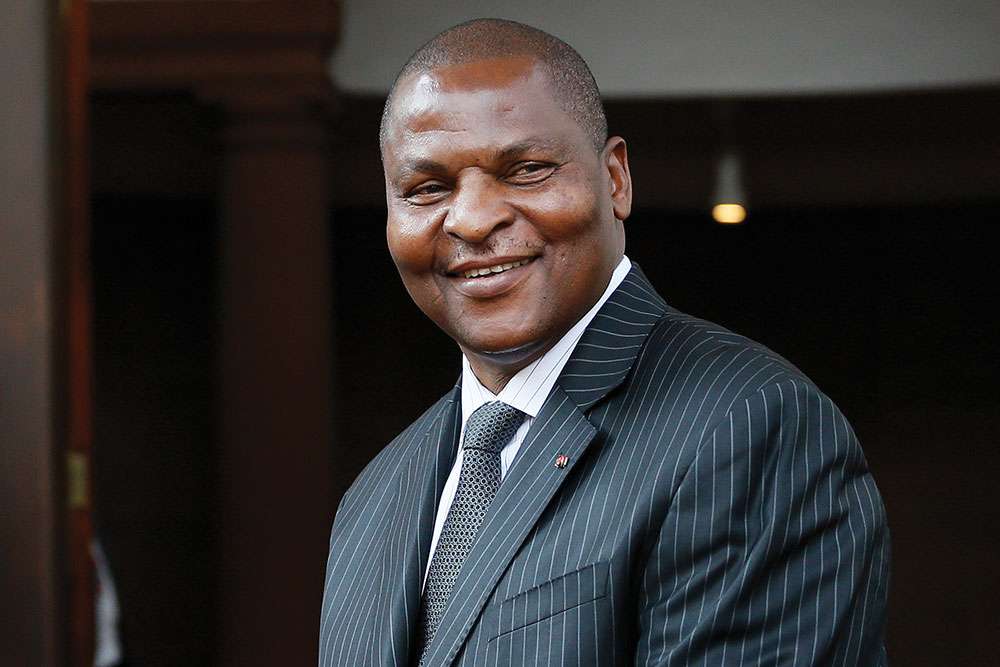Regional
President Touadéra of the Central African Republic wins second term

null
President Faustin-Archange Touadéra of the Central African Republic (CAR) was re-elected in the first round of the December 27 election with 53.92 percent of the vote, according to results announced by the country’s Election Commission Monday night. Mathias Morouba, the head of the Autorité Nationale des Elections (ANE), said Touadéra garnered 53.92% of votes, an absolute majority that allows him to be declared elected President since a second round run-off is unnecessary.
Former Prime Minister Anicet Georges Dologuele, who came second, managed 21.01% votes. Martin Ziguele finished third with 7% of the votes. Touadéra, 63, leader of the Mouvement Cœurs Unis, (MCU), or United Hearts Movement, political party, is an academic – a mathematics professor – who has been President of the country since March 2016. He was also Prime Minister from January 2008 to January 2013.
Opposition candidates have claimed that the election was riddled with irregularities largely because the December 27 vote took place despite an offensive by a coalition of armed rebel groups which left thousands unable to vote. Former CAR President François Bozizé, who was barred from standing in the poll, and is now leading a rebel coalition that tried to disrupt the election process and failed is, among others, accused of staging an attempted coup.
Bozizé whose whereabouts are unknown has denied the allegations. But he has said he supported the rebels. Prosecutors in Bangui have launched an investigation, accusing Bozizé of acts of destabilisation and rebellion.
The CAR is a resource-rich country endowed with uranium, gold and diamond, among others. Touadéra, a former mathematics professor and a former rector of the University of Bangui, was prime minister under Bozizé from 2008 until 2013. He quit just before Bozizé was overthrown by mainly Muslim rebels known as the Seleka.
But the country has remained unstable and has seen several coups since independence from France 60 years ago. In 2003, rebel leader and former army commander Bozizé seized power. Ten years later, amidst continued political turmoil, Bozizé fled into exile as a rebel coalition (the Seleka rebels) rapidly overrun the sparsely populated country of 4.7 million people and took control of the capital.
Chaos followed the ouster of Bozizé as a mostly Christian militia known as the anti-Balaka launched counterattacks against the Seleka. In 2015, a referendum on constitutional changes in November was followed by the first round of presidential election.
Bozizé returned to CAR end last year but was barred from standing in the just concluded election. Armed groups stemming from the Seleka and those affiliated with the anti-Balaka still roam freely in parts of the country where they cause havoc. It remains to be seen how the new government sets up a good disarmament and reintegration plan, and eventually secures the entire country.
Apart from the presence of more than 12,000 peacekeepers from the United Nations Multidimensional Integrated Stabilization Mission in the CAR (MINUSCA), Bangui has already solicited the help of Russia and Rwanda – through separate bilateral agreements- to help bolster it’s weak national security forces.

